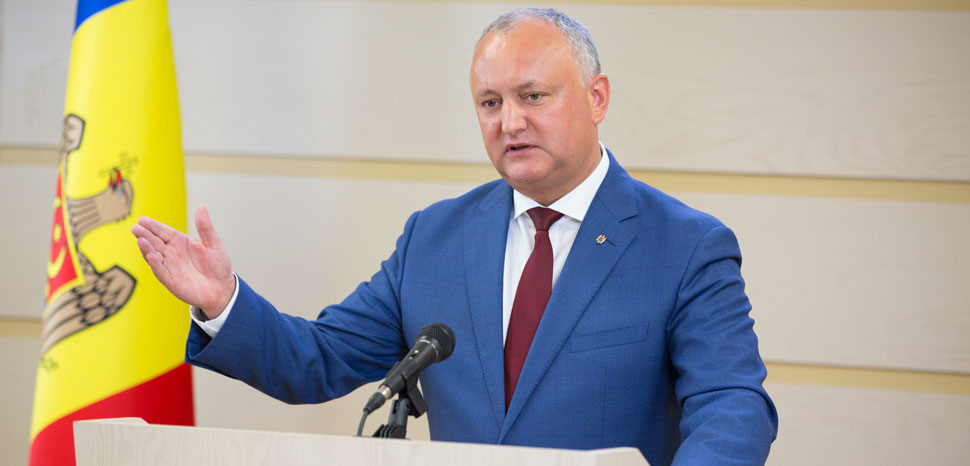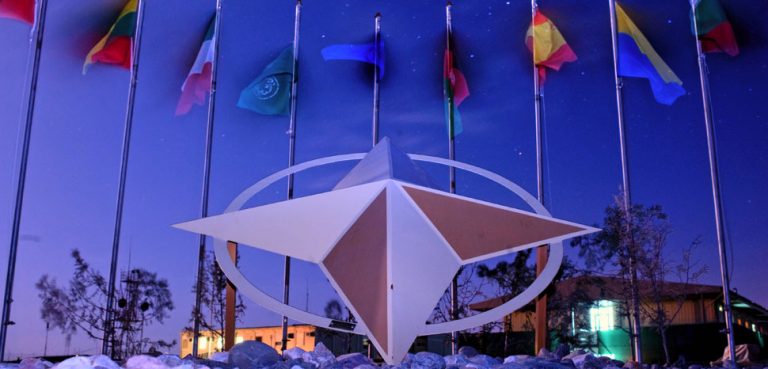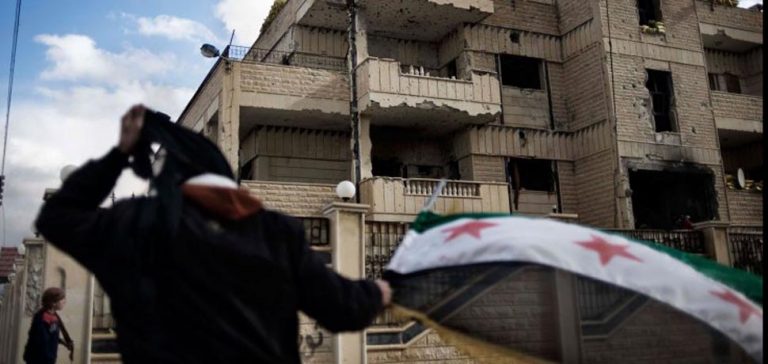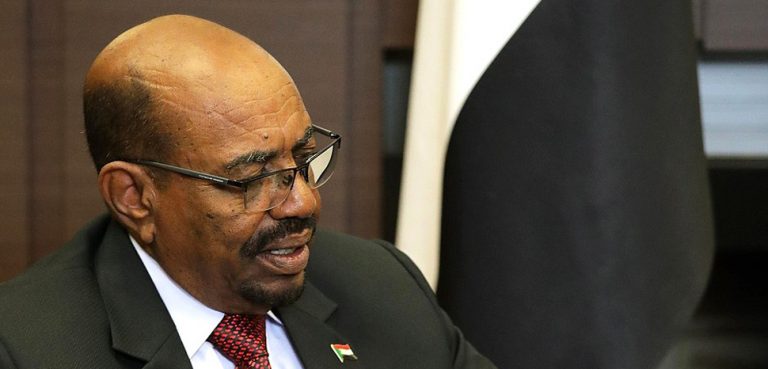On November 12th, following the resignation of the pro-Western Prime Minister of Moldova, Maia Sandu, former Georgian President Mikheil Saakashvili summarized the situation in the European Union’s near east thus: “Today, Putin has completed a power grab operation in Moldova” Saakashvili said. Putin won, and the West and the people of Moldova lost.”
The reality is bleaker still, yet poorly reported, due to the nuances of post-Communist political life in the Republic of Moldova. In the summer of 2019, many specialists forewarned of the dangers posed by the Kremlin regaining full influence over the country. As they advised, the unofficial coalition formed this June between the pro-West ACUM-bloc and the pro-Russian Socialist Party of Moldova (PSRM) was nominally neutral. Yet the leader of Moldova’s PSRM, President Igor N. Dodon, opened the door to Sandu’s dismissal, Dodon’s consolidation of power, and the abandonment of European integration. This is not just a decisive loss for Europe, and lynchpin structures such as the OSCE, but a resounding win for the Russian Federation. This is because President Dodon’s loyalty to Moscow is greater than his loyalty to his domestic Moldovan electorate. Since assuming the presidency in 2016, Dodon has visited Moscow more often than the localities in the country he governs. The present political climate in Chisinau—which during the week commencing Monday December 9th saw The Economist bemoan the country’s descent in to political nihilism, caused by the international community’s indifference, and The Jamestown Foundation decry the Organization for Security and Cooperation in Europe’s piteously ineffectual opposition to an authoritarian president and his apprentice prime minister—is not the result of international inertia alone. It is principally the result of a coalition that had failed the moment it was brought into being—as both Sandu and Dodon knew that they were entering an alliance brought to being by Russian diplomats.
The deal between the PSRM and ACUM has been termed the “Kozak Alliance” since its formation in June 2019, due to the decisive role assumed in its formation, creation, and suggested implementation by Deputy Prime Minister of the Russian Federation, Dmitry Kozak. Kozak led negotiations between Sandu’s ACUM bloc, and Dodon’s PSRM. While the electoral alliance has now been reconciled to the dustbin of failed governance, and while almost no evidence of substantive reform has been achieved—despite an allocation of almost $1 billion USD in funding from Moldova’s Euro-Atlantic partner—five months of coalition proved decidedly profitable to Moscow. With Kozak assuming the role of puppet-master, astonishing geopolitical progress was made—for Russia. Normally it is best to avoid statements of the unequivocal. Yet in Moldova’s case, it is unequivocally true to state that the sole beneficiary of European aid and American diplomacy has been Vladimir V. Putin—as Vladimir V. Putin knew well that an old-style Soviet and a European idealist would facilitate Russia’s requests.
President Vladimir V. Putin is a close friend of Dodon, and has taken a keen interest in his ally’s political party—which some have alleged extends to financial support. President Dodon has faced repeated accusations of receiving funds from illegal sources via offshore jurisdictions—in the form of illicit loans. He has also been caught on video relaying the operating costs of the PSRM to senior Russian foreign officials. Moldova has lost what little quasi-democracy that had existed, due to the West’s willingness to accept a demagogue whom Putin has cultivated for the office of the president. As a result, the European Union’s strategic objectives have failed. Vladimir V. Putin has strengthened his grip over the country. Important figures in the business community have fled en masse. If the subsidized Russian gas were switched off and the Western loans stopped, Moldova would simply implode.
With Sandu dismissed, and Dodon rapidly consolidating his hold of Moldova’s remaining independent institutions, the PSRM has literally decided to govern Moldova by themselves—through a “technocratic government.” While this term is borrowed from democracy, it has been termed autocracy, and even dictatorship, by numerous authors. This is because technocracy should mean impartiality, or, in effect, the use of independent civil servants to govern apolitically, until free and fair elections can take place. Yet in this instance, that government will be led by President Dodon’s adviser, Ion Chicu. As has already been reported, more of the ministers in Cicu’s technocrat government are former presidential advisers to Dodon than are not. In Moldova, the myth of rule by technocrats equates to the installation of figures desirable to the President, without the inconvenience of elections. Put simply, the oversight of impartial officials in Chisinau really means the silent installation of a dictatorship instead. When full, unflinching scrutiny is paid to just what has happened in Moldova since Russia’s coalition fell, an Eastern Partnership member which was regarded to be Western leaning in ideology under the Democratic Party now better resembles Minsk under Aleksander Lukashenko (or, in fact, Yanukovych’s Kyiv).
The Socialists decided to disband the Sandu government just a week after they registered a historic victory for the post of Mayor of Chisinau—capital of the Republic of Moldova. The city has always been regarded a bastion of pro-European thought; it houses one-third of the population and generates almost 70% of all financial resources within the country. In Moldova’s three decades of independence, 2019 heralded the first time that a pro-Russian candidate has been able to win control of Chisinau. That candidate was Ion Ceban—who is, perhaps predictably, a former adviser to President Dodon. The candidate fielded by Sandu’s ACUM bloc, Andrei Nastase, was summarized by most political observers to be one of the most puzzlingly pro-Russian candidates fielded by the nominally pro-European party Sandu claimed to represent. Nastase has, to inordinate confusion, aligned with Dodon’s government of pro-Russian socialists in successive governments. Therefore, while nominally pro-European, Nastase proved essentially unelectable—as the choice was between pro-Russian Ceban or pro-Russian Nastate.
The pro-European candidate supported Russia. The pro-Russian candidate supported Russia. Any choice besides Russia was impossible to express.
The disappointment was manifest in polling results, as an important group of pro-Western voters would not tolerate—nor vote for—a pro-Putin candidate. Nastase had been suspected of building ties to Moscow for several decades and of hoping to accrue Kremlin support. Like Ceban, he is also the subject of countless allegations of misappropriation of funds, malfeasance in public office, and other forms of corruption.
The clear pro-Russian orientation of Chisinau’s new mayor was evident one day after he obtained the mandate. Ion Ceban had declared the evening prior that work would begin immediately for the people of Moldova. Instead, Ceban met with the Russian Ambassador to Moldova, and discussed the deepening of bilateral relations with the cities of Vladimir Putin’s country.
All are left wondering how it was possible for Russia to strengthen its influence in Moldova, when the PSRM-ACUM coalition were supported by EU and US ambassadors, and when the government was dominated by ministers proposed by the pro-Western ACUM bloc. It’s simple. ACUM’s lack of political experience, in the form of former Prime Minister Maia Sandu, was no match for the long-term experience of pro-Russian President Igor Dodon—who pulled the strings from the start. The Socialists obtained only two positions in the Sandu government—that of deputy prime minister responsible for the Transnistrian dossier, a separatist region in the east of Moldova which enjoys de-facto self-governance following its split from Moldova in the 1990s. The other position acquired was that of minister of defense, a minister who wasted no time following appointment to show where their loyalties lay, flying almost immediately to Moscow—within the space of approximately 14 days—to discuss military collaboration between the countries.
By guile, deceit and the cynical creation of a toothless coalition controlled by Dodon, Russia has gained control over different institutions of force and control more quickly in 5 months than it did in almost three decades. The partners of the so-called “Kozak Alliance” were even able to subordinate Moldova’s Secret Service to Dodon’s control and as the deputy head of this institution was appointed an adviser of pro-Russian President Dodon, it’s difficult to see who has more control over Moldova’s spies—Moldova’s president, or the president of Russia. Moreover, through the creation of an additional structure known as the Supreme Security Council, Dodon has the right, de-jure, to compel any state institution to provide information of any kind—including that which is classified as a state secret. The magnitude of Dodon’s grip is terrifying to any observer, when the number of institutions under de-facto presidential control is detailed. Dodon even controls the State Protection and Guard Service, which is tasked with ensuring the safekeeping and security of the state’s first family and leaders. That institution has secretly named a former Socialist Party deputy as its leader.
This brings us to Moldova’s Anti-Corruption Center, an institution tasked with fighting high-level corruption—which is also now led by an adviser to President Dodon. Meanwhile, the interim General Prosecutor, Dumitru Robu—who under any true technocrat government would be supremely independent—often meets personally with Dodon to report his actions, and seek council. This is where the discerning reader might think Dodon’s allegiance to Moscow is so obvious, and disregard for democracy so preposterous, that there must be at least one independent institution—but the list of groups now grasped by Moldova’s pro-Moscow president goes on.
Vladimir Turcan, who is also a former parliamentarian to Igor N. Dodon’s political party has now been appointed President of the Constitutional Court—the institution which has the final say regarding the legality of the rules adopted by the government and parliament. The move caused a big scandal in Moldova, bringing the once amicable allies of said “Kozak Alliance” into open conflict. Maia Sandu had argued before her dismissal on a vote of no confidence that Dodon’s ability to make this appointment would threaten plurality and rule of law. Sandu is no longer prime minister. Dodon has taken control of the prosecutor’s office, the Anti-Corruption Center and the justice system, within approximately 14 days. Dodon, (which vicariously means “Putin”) can thus easily influence any process in Moldova’s bicameral democracy—from constitutional reform, to the law. This is not a democracy. It is an autocracy, built by Kozak, that supports Putin. It is a dictatorship, red, in tooth and claw.
Yet it doesn’t stop here. In order to gain control over the minds of Moldovans, the PSRM has strengthened its position in the country’s audiovisual sector too. The Socialist TV Trust now owns 4 television stations. They include NTV—a Russian federal station, beamed into Moldova from Moscow, with minimal local production. There is Accent TV, which is on the verge of receiving national broadcast frequency (after having obtained the right to relay the main TV station in Russia, Pervyi Kanal. Finally, we have TNT—Russia’s variety and entertainment channel. The strengthening of television to favor the Socialist Party is no coincidence. President Dodon also took control of Moldova’s Audiovisual Council, the institution responsible for domain administration.
Besides controlling Moldovan law, courts, and the electorate’s minds, Dodon needed to give Russia some tangible “matter” with which to cede complete control of Moldova to Vladimir Putin. So Dodon has begun efforts to take control of the country’s only international airport, along with the only port that offers this country access to the sea. Dodon didn’t seek anyone’s council—there would be little point, when no one is independent. He simply announced this mandate. The Russians are also interested in taking over the Moldovan Railway network, which is now state property. A bankrupt company with countless bad debts and equipment older than Moldova’s existence as an independent state was apparently worth retaking—though evidently not for national profit.
The current situation in Moldova has made the Ukrainian political scientist, Vitalie Portnikov proclaim that the alliance between Dodon’s PSRM and Sandu’s ACUM may well constitute “one of the most successful special operations of the Russian secret services in Moldova, but also a further demonstration of the West’s inability to analyze the possible developments of the processes in the post-Soviet space.”
Russia’s success in Moldova is also due to the fact that this country on the eastern border of NATO and the European Union has been forgotten by the US. The United States has relied on the fact that Germany will manage Moldova’s file in the interests of the West, but Angela Merkel’s closeness with Vladimir Putin has made Moldova too easy to surrender to the Kremlin. This caused experts from the neighboring country of the Republic of Moldova, Romania, to say that Angela Merkel, as well as Joseph Daul, the leader of the European People’s Party, is responsible for the entry of Chisinau into the Russian sphere – these two figures supported the unofficial PSRM-ACUM coalition and the removal of the Moldovan Democrats from power. The Democrats were led by Vladimir Plahotniuc, an anti-Russian politician who barred access by the Russian military in the Transnistrian region, blocked Russian propaganda from entering the country, and declared non grata the Russian hawk Dmitri Rogozin, deputy prime minister of the Russian Federation and one of the most aggressive anti-NATO politicians currently active. Plahotniuc also expelled several Russian agents and blocked a plan to federalize Moldova under the Russian model.
While Plahotniuc has been declared a diabolical politician in the Moldovan media, harassed by spurious criminal charges in Russia, and pursued supra-constitutionally by Dodon, it is difficult to argue their pathos. Plahotniuc favored deepening relations with NATO, and under the governance of Plahotniuc’s Democratic Party, a NATO office was not just opened in Chisinau. Moreover, NATO information centers were established within the country as well. During the same period, Moldovan military cooperation with NATO resumed after a pause of several years.
While Germany flirted with Russia, being interested in the Nord-Stream, Moscow restored its influence in Chisinau, and this post-Soviet country is now moving further away from the West.
Although it is a small country, with only 33 thousand square kilometers, Moldova is located on the southeastern border of the European Union and NATO, and also on the coast of Ukraine—which faces unending harassment from Russia. A stronger Russian position in Moldova will cause big problems for Ukraine; it will also create discomfort for the NATO bloc. Just 150 km from NATO, and Chisinau, stand several thousand Russian soldiers—with over 20,000 tons of ammunition. They have no claim in international law to stand there, but stand there illegally nonetheless—under Dodon’s approval, and to Putin’s gain—in direct contravention of countless international agreements and resolutions.
The US needs to take decisive action to bring Moldova back to the path of Western values. In this case, the best ally of the USA is the neighboring state of Romania. A NATO member state and member of the EU, with strong trans-Atlantic ties, it is also a state with many cultural and historical affinities to its neighbors, who share the same language and customs. Romania already talks openly about the Russian danger from their eastern border, a warning that came even from a former prime minister, Victor Ponta. It is time for Washington to open its eyes to what is happening in this part of the world, lest it miss the alarm—and alarm clock—and wake instead to a Union of Soviet Socialist Republics, reborn under a president who had publically proclaimed his preference for this form of governance.
The views expressed in this article are those of the authors alone and do not necessarily reflect those of Geopoliticalmonitor.com or any institutions with which the authors are associated.




